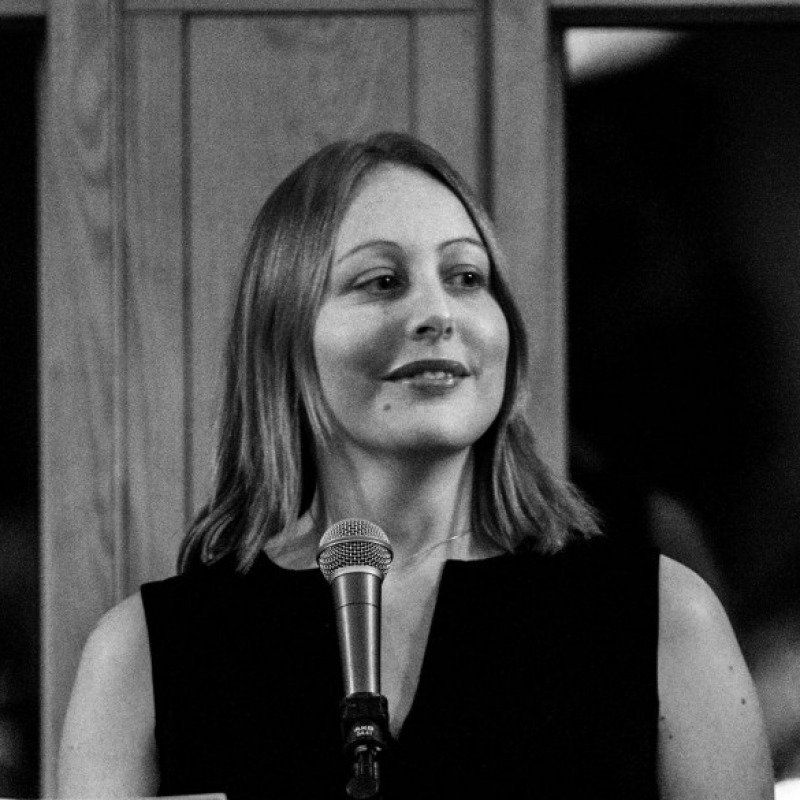In this series, we interview our tutors about poetry and its place in their world. These interviews will cover creative writing tips, excelling in a poetry workshop, building a literary career, and finding your poetic voice. Here’s Elizabeth Parker on how to offer feedback.

1. Can you describe a time when you provided feedback on a poem that significantly improved the poet’s work?
There have been times when a word I have suggested has introduced a metaphor and another layer of meaning to a fellow poet’s work. In other instances, trimming imagery to let the most powerful have centre-stage has increased the power of a piece. At times, where it would strengthen the poem, I have suggested stricter adherence to a form or meter that the poet has used loosely. On other occasions, where weaker words and images have been selected to keep to a form, I have discussed with the poet how to strike a balance and achieve the highest quality poem, using all the tools available to their best effect.
2. How do you balance offering honest critique with being encouraging and supportive?
This requires gauging the sensitivities of each poet, ascertaining how fixed they are they on their initial intention – the impulse that drove them to start writing the poem. It is crucial to understand how personal the poem is to the writer and how important it is to the poet that it stays personal, fulfilling the poet’s original aims.
If the poet is passionate about expressing what they set out to express, a mentor must support this. If the poet is pliant, willing to see the potential of the poem as an artwork; willing to make changes that alter the meanings and emotions of the poem while creating a piece that is more impactful and striking; willing put intent aside and work with the more powerful possibilities a mentor sees in the work, then the comments will be very different.
3. When giving feedback on a poem, how do you address both the technical aspects (like structure, rhythm, and imagery) and the emotional impact of the poem?
If it is a verbal discussion, I’ll ask a poet to scan their own work. I will have scanned the piece beforehand. I’ll discuss with the poet what feet or meter they are using, intentionally or not. They may have set out to use a meter, or they may have been unaware that they were using certain feet or a particular meter. We would then discuss where the use of a particular foot or meter is a success (as I’ve mentioned, I will already have thought about this).
For example, a poet might have used a spondee (a metrical foot of two heavy beats/stresses) to powerful effect without realising it is a spondee. I would zoom in on this success, discuss with the poet why a detail, a measure of stress and/or syllable length, is working so well. I would do the same for other technical features such as enjambment, lineation, rhyme – identifying, in preparation for the discussion, where these features are working to powerful effect. I find this is far more impactful than focusing solely on the weaker points of a poem.
4. What strategies do you use to ensure that your feedback is specific and actionable rather than just general praise or criticism?
I will have annotated the piece in detail before any discussion, offering suggestions where I have said a change should be made. I will always provide a lengthier comment addressing strengths and areas for improvement.
5. How do you handle situations where you don’t personally connect with a poem, but you still need to offer valuable feedback to the poet?
If a poem is effective, I will enjoy it whether or not I personally connect with it. I strongly believe that, when a poem works, is powerful in some way, a reader who is a lover of poetry as an artform will take it on its own terms. If the poem is not working – is not vivid or powerful – I will offer comments, suggest changes. Some of these may be major. Even if I don’t relate to the poem, I will be able to see how it is operating, or failing to operate, as a work of art.
As I have suggested earlier, it is more important to establish whether the poem is so personal to the poet that they are intent on keeping it that way – intent on expressing the emotion or experience that inspired them to write, even if there are possibilities within the poem for a far more powerful piece, were the poet to let go of that original intent. This is my concern, not whether the poem relates to a personal experience I have had.
6. Can you discuss how you tailor your feedback based on the poet’s level of experience or their specific goals for their poetry? How does your approach differ between a novice poet and an experienced one?
In the work of a more experienced poet, there will be strengths, impactful imagery, and it is often the case that there is too much imagery. In this case, I’ll try to help the poet in choosing the strongest image in a line or stanza, filing away the rest for another poem! I’ll ask a more experienced poet to focus on the details of stress placement, lineation and use of punctuation (all of which I am focusing on improving in my own work). I will sometimes suggest trying a traditional form, where the poem would be strengthened by those parameters.
With a less experienced poet, it is quality of imagery and word choice that usually need work. Particularly important with less experienced poets is ensuring they are reading the best in contemporary poetry, as well as older works. I would always offer both experienced and less experienced poets a list of suggested reads.

Elizabeth Parker was born in London and grew up in Pygmy Pinetum Garden Nurseries, a garden centre in The Forest of Dean. She lives in Bristol with her partner and two sons. She was a secondary school English teacher for eight years and is writing two novels based on her experiences teaching Shakespeare to teenagers.
Elizabeth’s first full collection, In Her Shambles, was published by Seren Books in April 2018 and her second collection, Cormorant, was published by Seren this February. She is a founding member of Bristol poetry quartet The Spoke, who perform their work at festivals and events. She is also co-host of monthly Bristol poetry event Under The Red Guitar.
Elizabeth is currently experimenting with poetic forms as she works on a long poem about her wonderful father, who has late-stage dementia, and a collection about the life and sudden loss of her sister, the playwright and glorious human being Helen K Parker. Her cormorants continue, as she has just begun to draft a poem titled ‘Helen As Cormorant’.
Add your Reply
You must be logged in to post a comment.